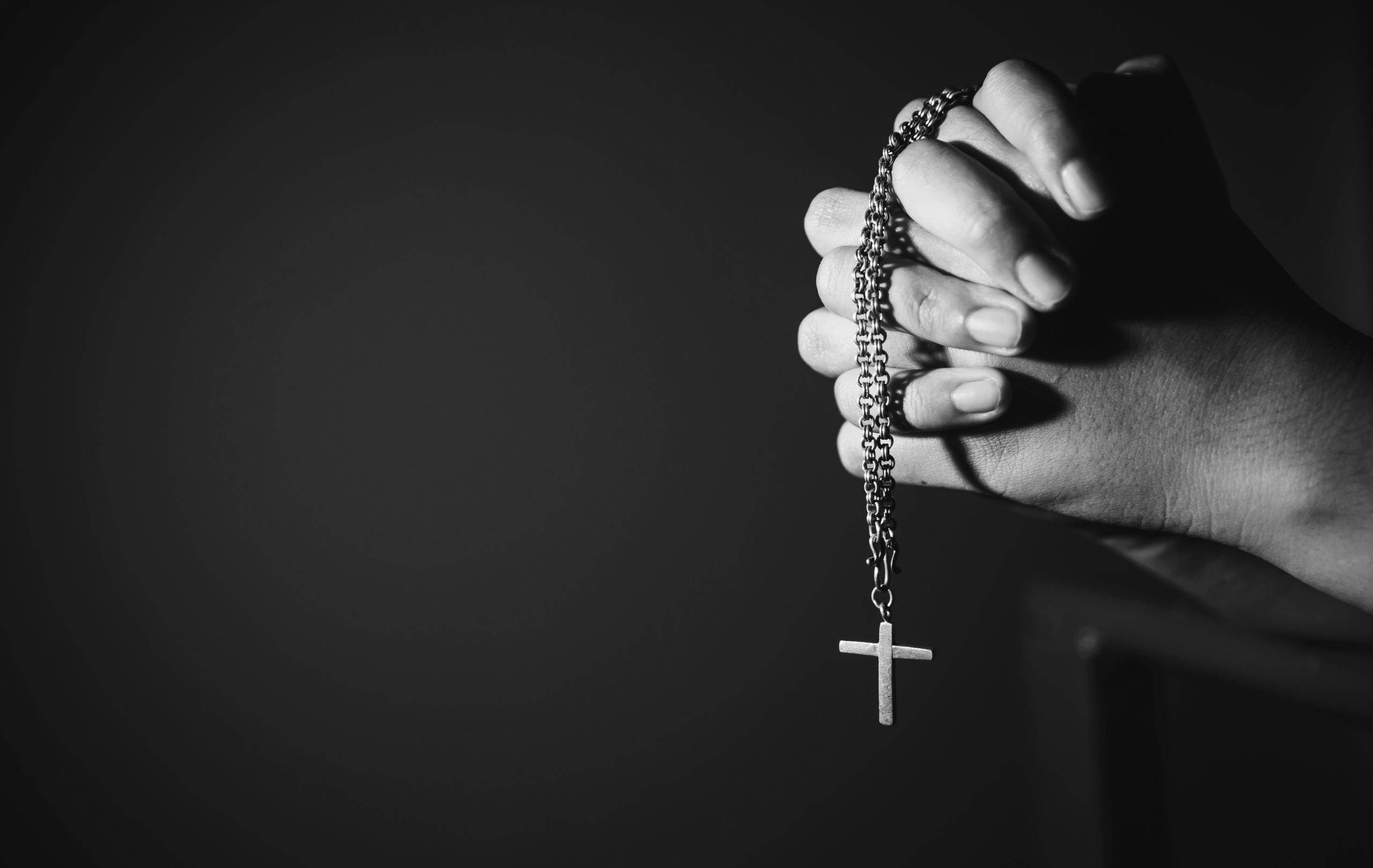An 'Extremist Symbol'
The Rosary attracts “extremists” in part because the Rosary itself—and the faith it expresses—is “extreme.”

Yesterday was the feast of the Assumption of the Blessed Virgin Mary. Naturally, the Atlantic ran a hit piece on the Rosary.
The author was an "online hate researcher" named Dan Panneton. He argued, in a piece originally titled "How the Rosary Became an Extremist Symbol," that "radical-traditional Catholics" and other "far right" forces have blurred the lines between the Rosary as a spiritual weapon and a symbol of physical violence.
The idea that the Rosary is a weapon against Satan and demonic forces has a long pedigree in Catholic theology. Panneton concedes as much. He argues that "radical-traditionalist Catholics" have appropriated the spiritual-warfare concept "literally to demonize their political opponents and regard the use of armed force against them as sanctified." He claims that these Catholics want to enact "righteous violence" on "secularists, progressives, or Jews."
His proof of these extraordinary claims includes anonymous "influencers" and "radical traditionalists" whose social-media pages feature images like "rosaries draped over firearms."
There is a colorable case that some conservative Catholics have a disordered attachment to American gun culture. And I'm sure some are given to violent rhetoric. But Pannenton goes further, claiming that the Rosary has been used to "integrate ultraconservative Catholicism with other aspects of online far-right culture."
Consider what he means by "ultraconservative Catholicism." Panneton describes the belief that "Catholics alone adhere to the one true Church"—the perennial teaching of the Catholic Church—as a "hard-line position" held by "radical traditional Catholic men." He explicitly and implicitly indicts Catholics who "campaign against LGBTQ acceptance in the Church" (that is, changing the Church's 2,000-year-old teaching on sodomy), believe "other forms of Christianity are heretical," are hostile "toward liberalism and secularism," and "idealize the traditional patriarchal family." At least two of those four positions represent the official teachings of the Catholic Church. He claims the Rosary has been appropriated by traditionalist Catholics to serve these ends, but it is clear that the opposite is true: Panneton dislikes traditional Catholicism, and associates the Rosary with traditional Catholics.
The piece does not advance an argument as much as it does a series of observations, most of which are unsubstantiated, about right-wing Catholics and their alleged sympathy for things that Panneton thinks are problematic—Christian nationalism, traditionalist Catholicism, Church teaching on sexuality, far-right politics, American gun culture, and rejection of the Second Vatican Council. Some of those things are problematic, but the issues with them have very little to do with the Rosary. The fact that some unnamed Catholics have pictures of Rosary-draped guns in their social-media profiles is supposed to be an argument, but it is not clear what that is supposed to tell us other than that some unnamed Catholics should reconsider their relationship with firearms.
All of this is incidental to Panneton's broader point, which is theological:
Yet the convergence within Christian nationalism is cemented in common causes such as hostility toward abortion-rights advocates. The pro-choice protests that followed the leaked early draft of the Supreme Court decision in Dobbs v. Jackson Women’s Health Organization, which overturned Roe v. Wade, led to a profusion of social-media posts on the far right fantasizing about killing activists, and such forums responded to Pride month this year with extremist homophobic and transphobic “groomer” discourse. Rad-trad networks are also involved in organizing rosary-branded events that involve weapons training.
Subscribe Today
Get daily emails in your inbox
Praying the Rosary is associated with observant Catholicism. Observant Catholics believe what the Church teaches. The Church is against homosexuality and abortion. Panneton, a "hate researcher," believes those positions are hateful. Because the Rosary is associated with people who hold what he perceives to be hateful beliefs, he perceives the Rosary to be, as his title originally put it, a symbol of "extremism." It is not complicated.
I suspect that, for all his objections to combat rosaries and impious posts by anonymous Catholics on Twitter, Panneton's Atlantic piece was prompted by the small armies of Rosary-wielding men praying outside of abortion clinics and defending churches from vandals in the immediate aftermath of Dobbs. Such actions, to Panneton, seemed "extreme."
Indeed, Panneton uses the word "extremist" as an epithet four times in his piece. He should consider what the Rosary is: Catholics ask for the intercession of a first-century virgin whose son, believed to be God, was executed by the state, buried in a tomb, subsequently appeared to His followers, ascended from their midst, and will, they believe, return to variously admit to eternal beatitude or condemn to unending torment every human being who has ever lived. The Rosary attracts "extremists" in part because the Rosary itself—and the faith it expresses—is "extreme."